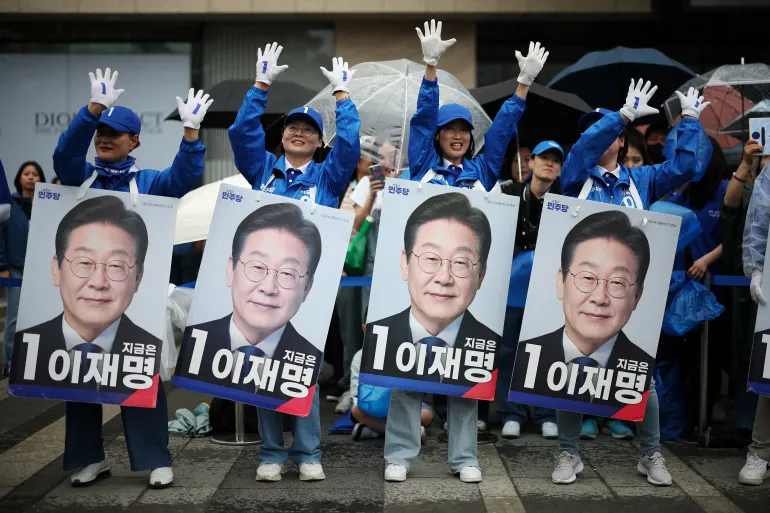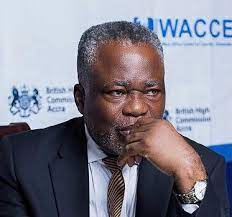Exit polls in South Korea have projected that Lee Jae-myung will become the country’s new President after a snap election.
Exit polls show that Lee Jae-myung of the opposition Democratic Party of Korea winning more than 50 percent of the vote in today’s snap election, while Kim Moon-soo of the governing conservative People Power Party trails behind with about 39.3 percent.
The snap vote was called after former leader Yoon Suk-yeol was impeached and removed from office over his shock martial law decree.

Lee, a 61-year-old former human rights lawyer who had made two failed attempts to reach the presidential Blue House, rode a wave of public anger that followed Yoon’s declaration of martial law in early December.
In his final campaign speeches on Monday, Lee promised to revitalise the economy, reduce inequality and ease national divisions, warning that victory for Kim would allow Yoon’s “rebellion forces” to return.
“If they somehow win, that would mean the return of the rebellion forces, the destruction of democracy, the deprival of people’s human rights, the normalisation of martial law and our country’s downfall into a backward, third-world nation.”
Lee Jae-myung
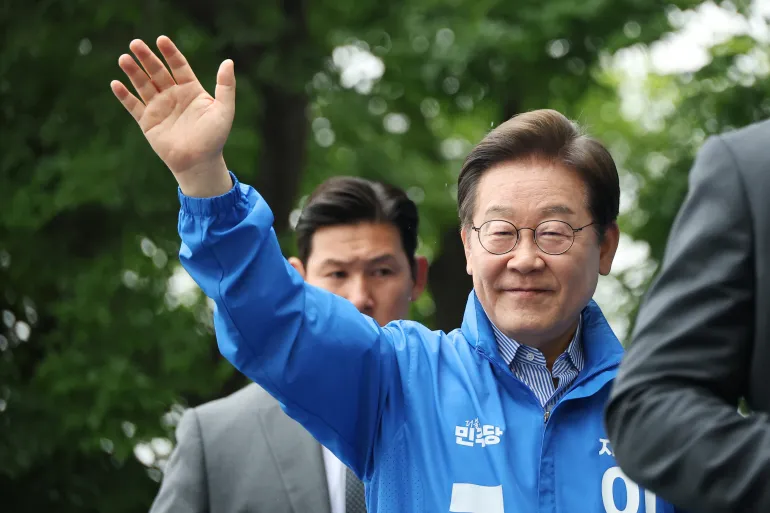
Kim, a former Labour Minister under Yoon, warned that a victorious Lee would abuse his powers to retaliate against his political opponents and use his party’s majority in the national assembly to protect him in several court cases that will resume after the election.
Kim told a rally in the south-eastern city of Busan that Lee “is now trying to seize all power in South Korea and establish a Hitler-like dictatorship.”
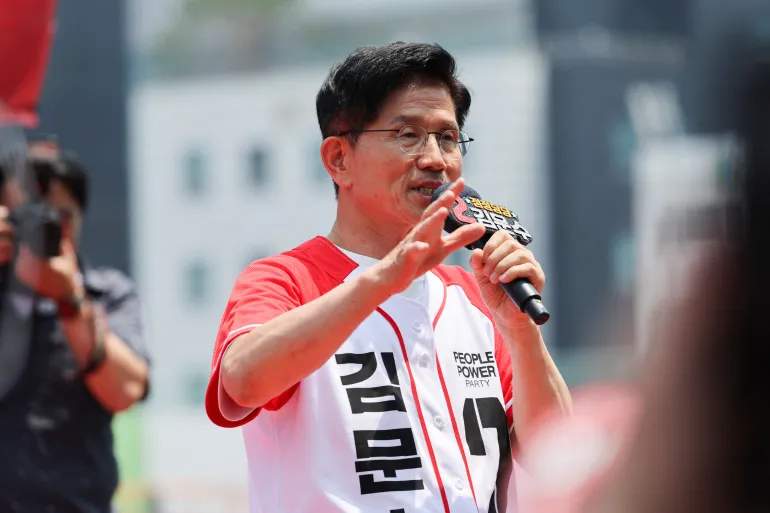
Lee, who headed the opposition-led campaign to oust Yoon, is a highly divisive figure in South Korean politics. He faces criminal trials including charges of bribery and alleged involvement in a property development scandal.
Courts agreed to postpone further hearings of continuing trials until after the election, allowing him to contest the presidency while the cases remained unresolved. Lee denies all charges, describing them as politically motivated persecution.
According to the KBS-MBC-SBS exit poll, Lee’s decisive election lead extends across much of South Korea’s north, western and southern regions.
In the most populous province of Gyeonggi, he has 55.8 percent of the vote, compared with Kim’s 34.6 percent.
In the capital, Seoul, he leads with 49.3 percent, beating Kim’s 40.1 percent.
Lee’s largest lead is in southwestern Gwangju, where he has 81.7 percent of the vote, compared with Kim’s 10.5 percent.
Kim, however, leads in many areas across central and southeastern Korea, including the second most populous city of Busan. There he is projected to have 49 percent of the vote, compared with Lee’s 42.7 percent.
Lee, a frontrunner since the start of the campaign, will face several major challenges, including a slowing economy, Trump’s trade war and the nuclear threat posed by North Korea.
Voter Turnout At 79.4 Percent
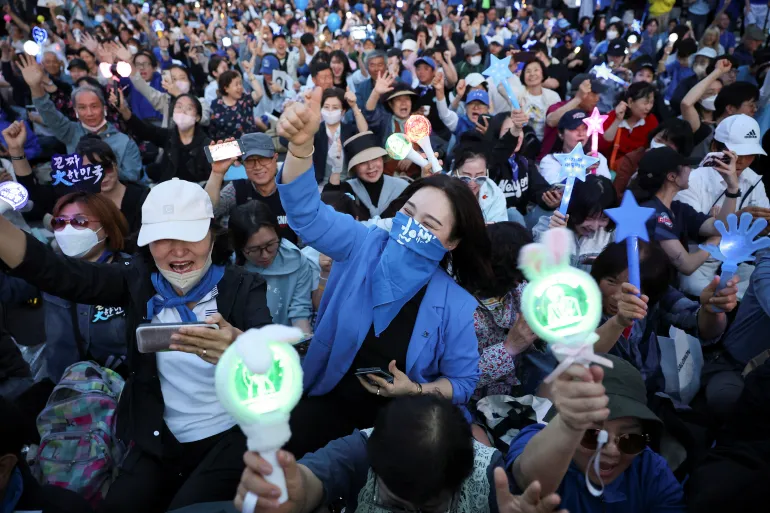
Official figures show voter turnout to be 79.4 percent nationwide.
The highest rate was recorded in the city of Gwangju at 83.9 percent. The lowest in Jeju province at 74.6 percent.
In the capital, Seoul, the figure was 83.1 percent. The overall figure is the highest turnout in a presidential election since 1997.
More than a third of the 44.39 million eligible voters had cast their ballots in early voting last Thursday and Friday. A declaration of the official result was expected several hours after polls closed at 8pm local time, possibly before midnight.
Some South Koreans view the election, called after the constitutional court upheld Yoon’s impeachment in early April, as evidence that their democracy is in good health.
In a Facebook message on Tuesday, Lee had cast the election as voters’ opportunity to “save South Korea, which is in crisis due to the greed of the establishment.”
READ ALSO: Ghana’s Fuel Price Cuts ‘Woefully Inadequate,’ Says COPEC

